"""Implementation of the chemical file reader/write using Open Babel"""
from pathlib import Path
from openbabel import openbabel
import molsystem
# Get the list of file formats from Open Babel
obConversion = openbabel.OBConversion()
known_input_formats = obConversion.GetSupportedInputFormat()
known_output_formats = obConversion.GetSupportedOutputFormat()
del obConversion
[docs]
def load_file(
path,
configuration,
extension=".sdf",
add_hydrogens=False,
system_db=None,
system=None,
indices="1:end",
subsequent_as_configurations=False,
system_name="Canonical SMILES",
configuration_name="sequential",
printer=None,
references=None,
bibliography=None,
**kwargs,
):
"""Use Open Babel for reading any of the formats it supports.
See https://en.wikipedia.org/wiki/Chemical_table_file for a description of the
format. This function is using Open Babel to handle the file, so trusts that Open
Babel knows what it is doing.
Parameters
----------
file_name : str or Path
The path to the file, as either a string or Path.
configuration : molsystem.Configuration
The configuration to put the imported structure into.
extension : str, optional, default: None
The extension, including initial dot, defining the format.
add_hydrogens : bool = True
Whether to add any missing hydrogen atoms.
system_db : System_DB = None
The system database, used if multiple structures in the file.
system : System = None
The system to use if adding subsequent structures as configurations.
indices : str = "1:end"
The generalized indices (slices, SMARTS, etc.) to select structures
from a file containing multiple structures.
subsequent_as_configurations : bool = False
Normally and subsequent structures are loaded into new systems; however,
if this option is True, they will be added as configurations.
system_name : str = "from file"
The name for systems. Can be directives like "SMILES" or
"Canonical SMILES". If None, no name is given.
configuration_name : str = "sequential"
The name for configurations. Can be directives like "SMILES" or
"Canonical SMILES". If None, no name is given.
printer : Logger or Printer
A function that prints to the appropriate place, used for progress.
references : ReferenceHandler = None
The reference handler object or None
bibliography : dict
The bibliography as a dictionary.
Returns
-------
[Configuration]
The list of configurations created.
"""
if isinstance(path, str):
path = Path(path)
path.expanduser().resolve()
obConversion = openbabel.OBConversion()
obConversion.SetInAndOutFormats(extension.lstrip("."), "smi")
obMol = openbabel.OBMol()
obConversion.ReadFile(obMol, str(path))
if add_hydrogens:
obMol.AddHydrogens()
configuration.from_OBMol(obMol)
# Set the system name
if system_name is not None and system_name != "":
lower_name = system_name.lower()
if lower_name == "title":
tmp = obMol.GetTitle()
if tmp != "":
system.name = tmp
else:
system.name = path.stem
elif "canonical smiles" in lower_name:
system.name = configuration.canonical_smiles
elif "smiles" in lower_name:
system.name = configuration.smiles
elif "iupac" in lower_name:
system.name = configuration.PC_iupac_name
elif "inchikey" in lower_name:
system.name = configuration.inchikey
elif "inchi" in lower_name:
system.name = configuration.inchi
elif "formula" in lower_name:
system.name = configuration.formula[0]
else:
system.name = system_name
# And the configuration name
if configuration_name is not None and configuration_name != "":
lower_name = configuration_name.lower()
if lower_name == "title":
tmp = obMol.GetTitle()
if tmp != "":
configuration.name = tmp
else:
configuration.name = path.stem
elif "canonical smiles" in lower_name:
configuration.name = configuration.canonical_smiles
elif "smiles" in lower_name:
configuration.name = configuration.smiles
elif "iupac" in lower_name:
configuration.name = configuration.PC_iupac_name
elif "inchikey" in lower_name:
configuration.name = configuration.inchikey
elif "inchi" in lower_name:
configuration.name = configuration.inchi
elif lower_name == "sequential":
configuration.name = "1"
elif "formula" in lower_name:
configuration.name = configuration.formula[0]
else:
configuration.name = configuration_name
if references:
# Add the citations for Open Babel
citations = molsystem.openbabel_citations()
for i, citation in enumerate(citations, start=1):
references.cite(
raw=citation,
alias=f"openbabel_{i}",
module="read_structure_step",
level=1,
note=f"The principal citation #{i} for OpenBabel.",
)
return [configuration]
[docs]
def write_file(
path,
configurations,
extension=".sdf",
remove_hydrogens="no",
printer=None,
references=None,
bibliography=None,
**kwargs,
):
"""Use Open Babel for reading any of the formats it supports.
See https://en.wikipedia.org/wiki/Chemical_table_file for a description of the
format. This function is using Open Babel to handle the file, so trusts that Open
Babel knows what it is doing.
Parameters
----------
file_name : str or Path
The path to the file, as either a string or Path.
configurations : [molsystem.Configuration]
The configurations to write -- should be one for this module
extension : str, optional, default: None
The extension, including initial dot, defining the format.
remove_hydrogens : str = "no"
Whether to remove any hydrogen atoms before writing the file.
printer : Logger or Printer
A function that prints to the appropriate place, used for progress.
references : ReferenceHandler = None
The reference handler object or None
bibliography : dict
The bibliography as a dictionary.
Returns
-------
[Configuration]
The list of configurations created.
"""
if isinstance(path, str):
path = Path(path)
path.expanduser().resolve()
obConversion = openbabel.OBConversion()
obConversion.SetInAndOutFormats("smi", extension.lstrip("."))
configuration = configurations[0]
system = configuration.system
obMol = configuration.to_OBMol()
title = f"{system.name}/{configuration.name}"
obMol.SetTitle(title)
if remove_hydrogens == "nonpolar":
obMol.DeleteNonPolarHydrogens()
elif remove_hydrogens == "all":
obMol.DeleteHydrogens()
obMol.SetTitle(f"{system.name}/{configuration.name}")
obConversion.WriteFile(obMol, str(path))
if references:
# Add the citations for Open Babel
citations = molsystem.openbabel_citations()
for i, citation in enumerate(citations, start=1):
references.cite(
raw=citation,
alias=f"openbabel_{i}",
module="read_structure_step",
level=1,
note=f"The principal citation #{i} for OpenBabel.",
)
return [configuration]

